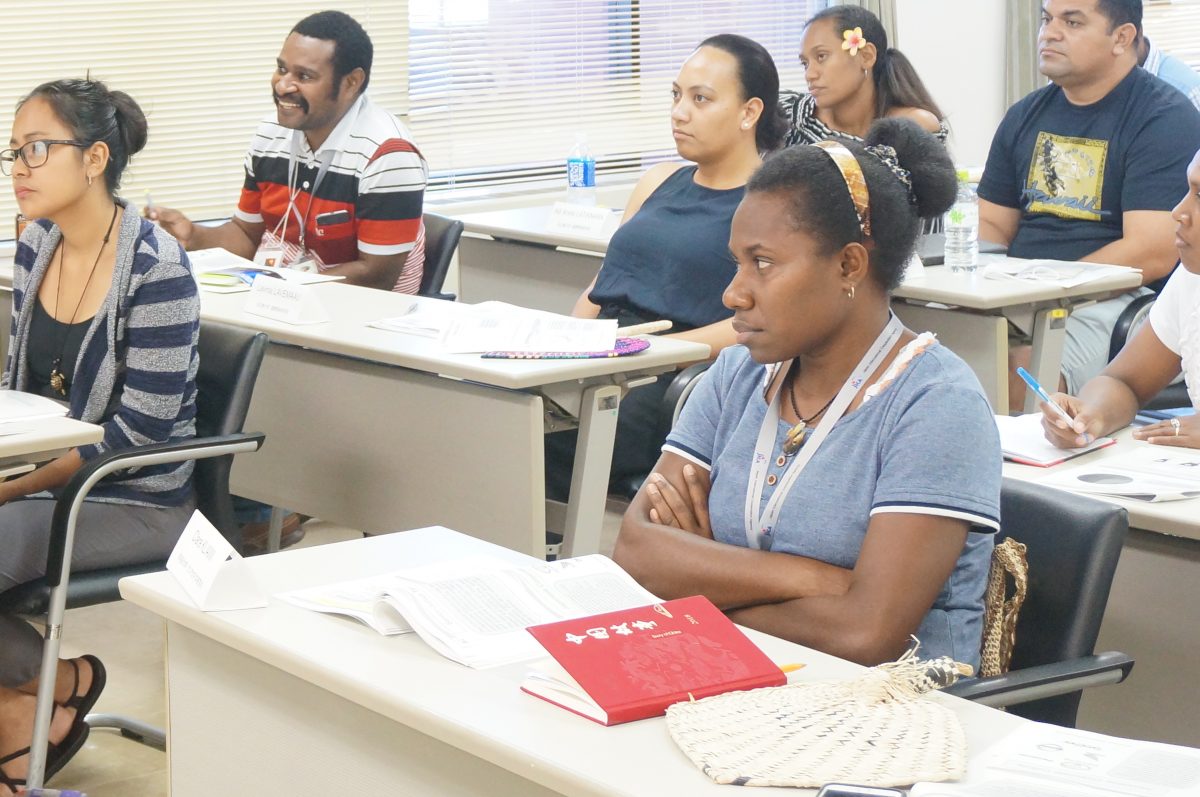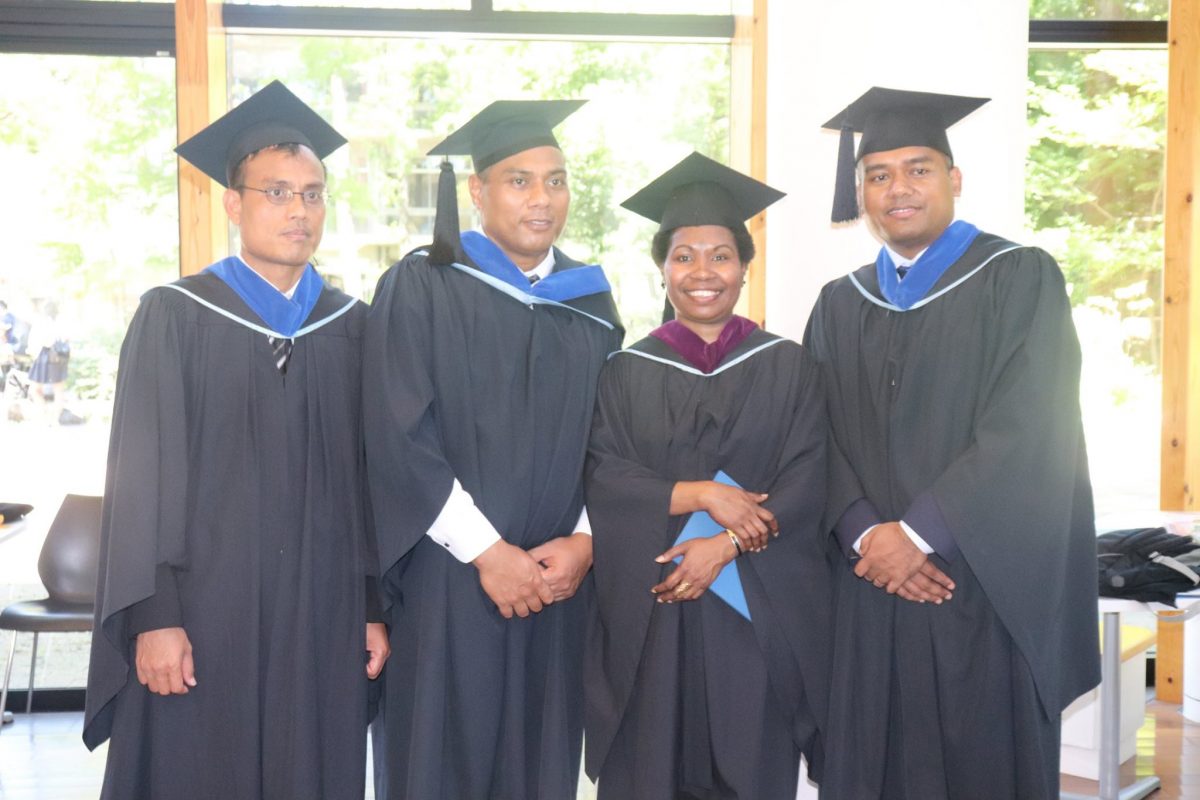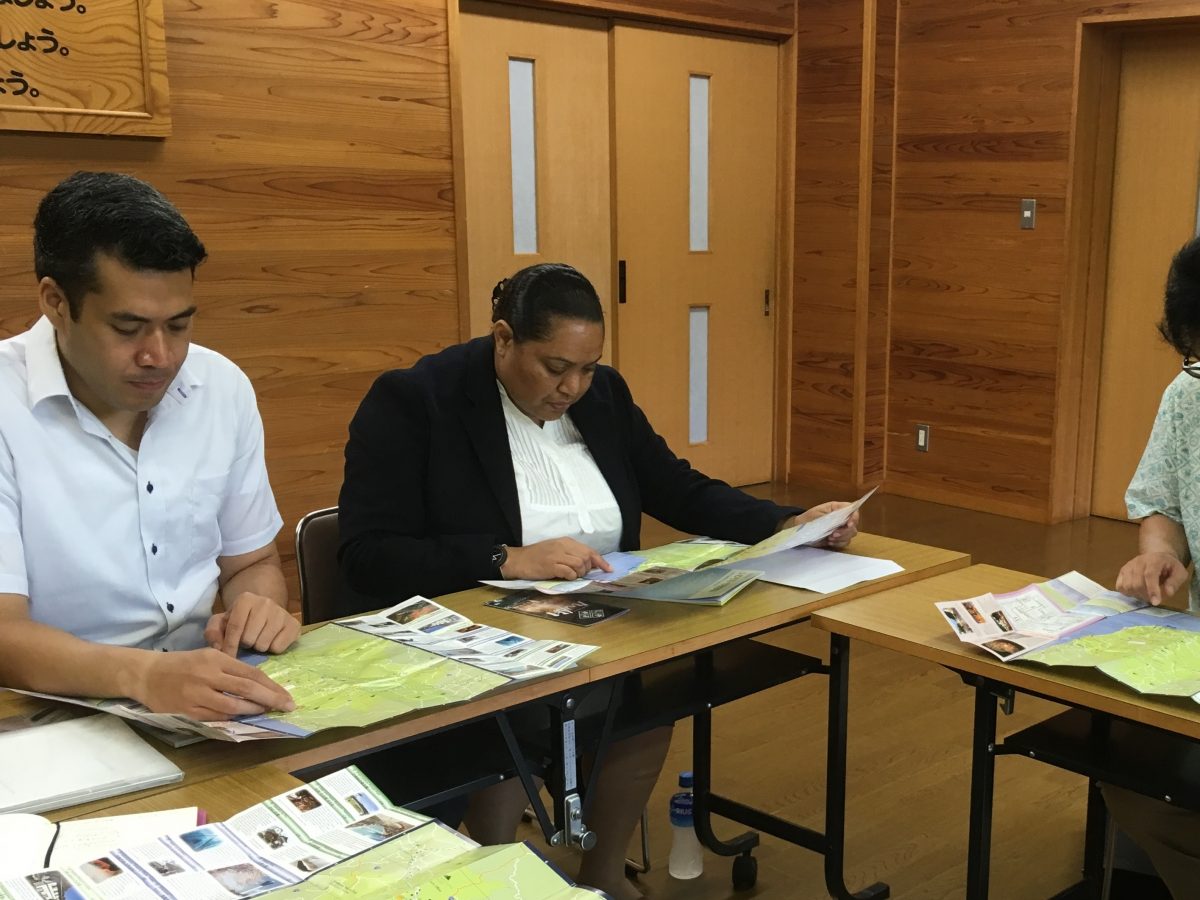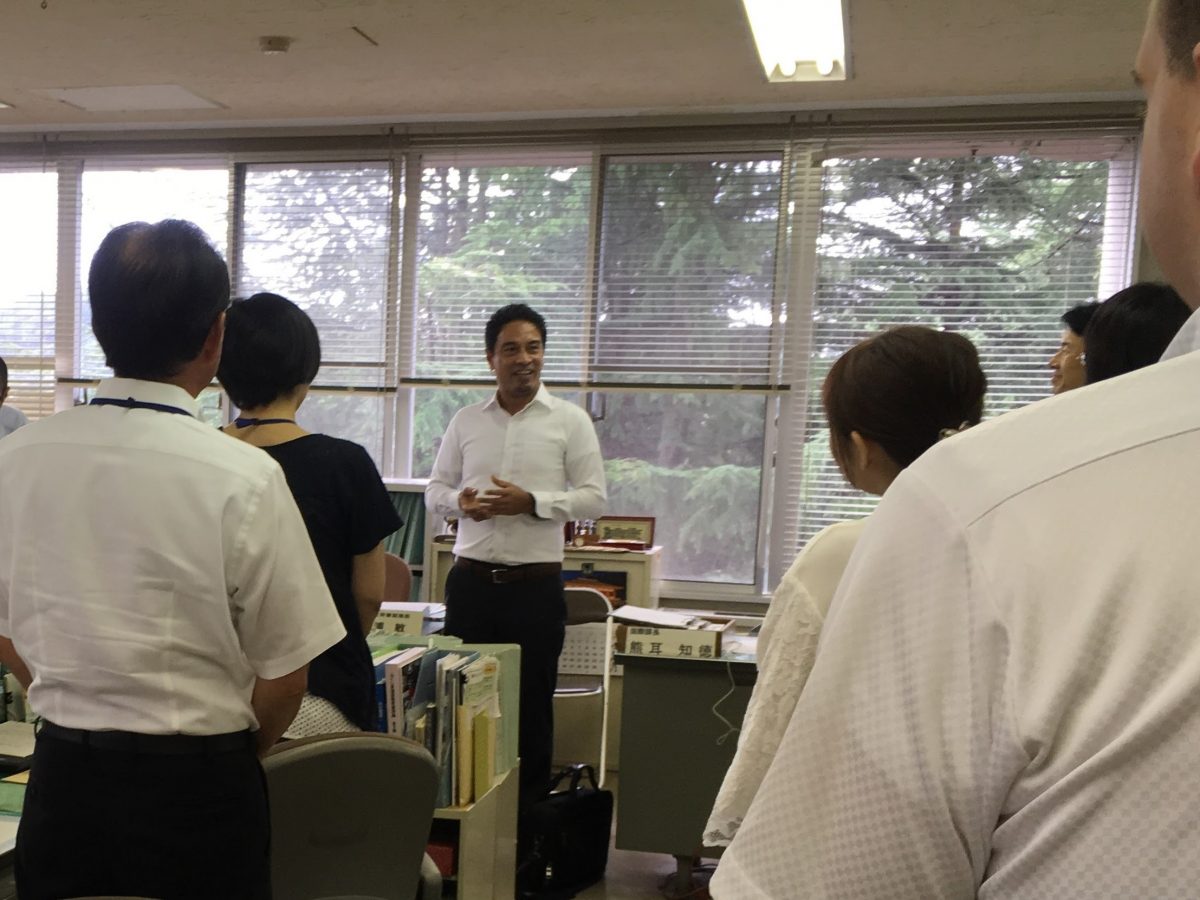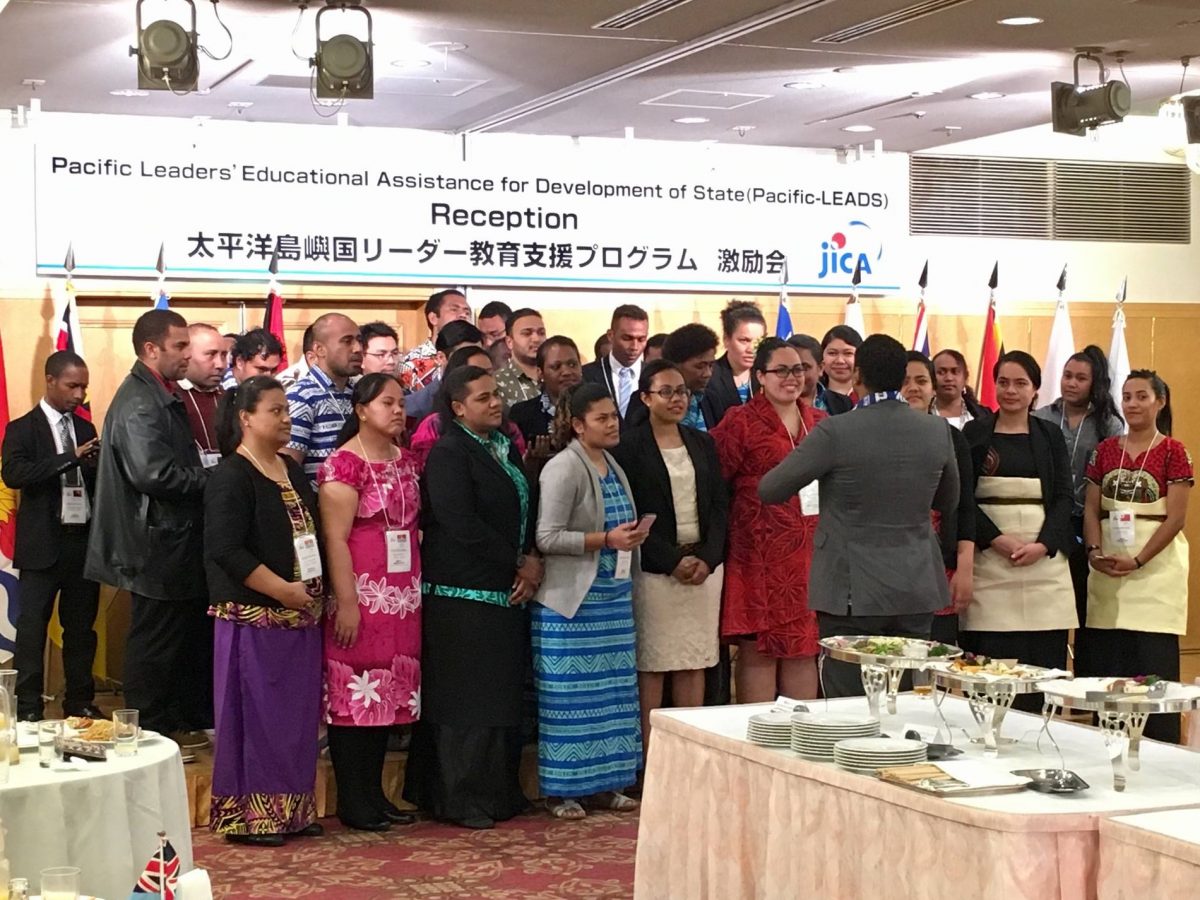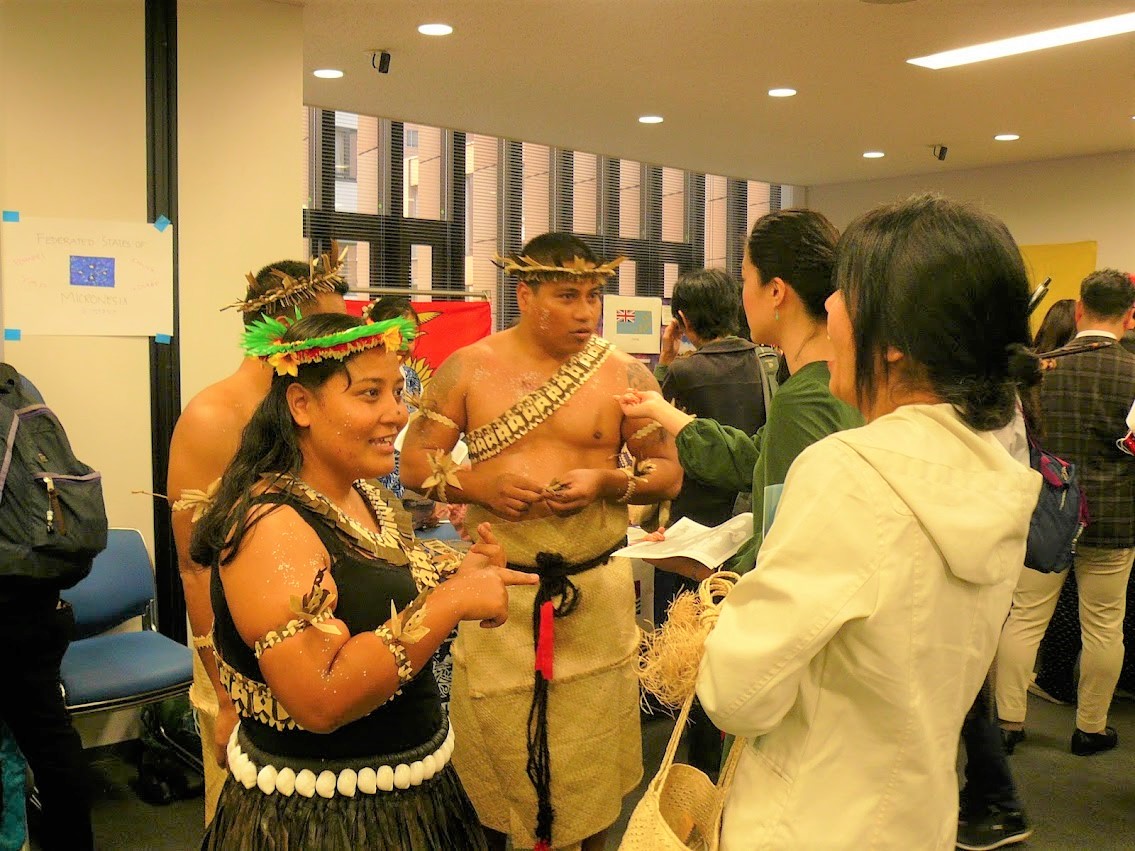As a program support organization, Asia SEED is in charge of everything from recruitment and selection of international students to preparation for coming to Japan, life support and academic monitoring during the stay in Japan, coordination of internship, support for returning home, and follow-up after returning home. By providing detailed support throughout the entire course, we effectively develop the abilities of each international student according to their interests and specialized fields.
Pacific Leaders’ Educational Assistance for Development of State (Pacific-LEADS)
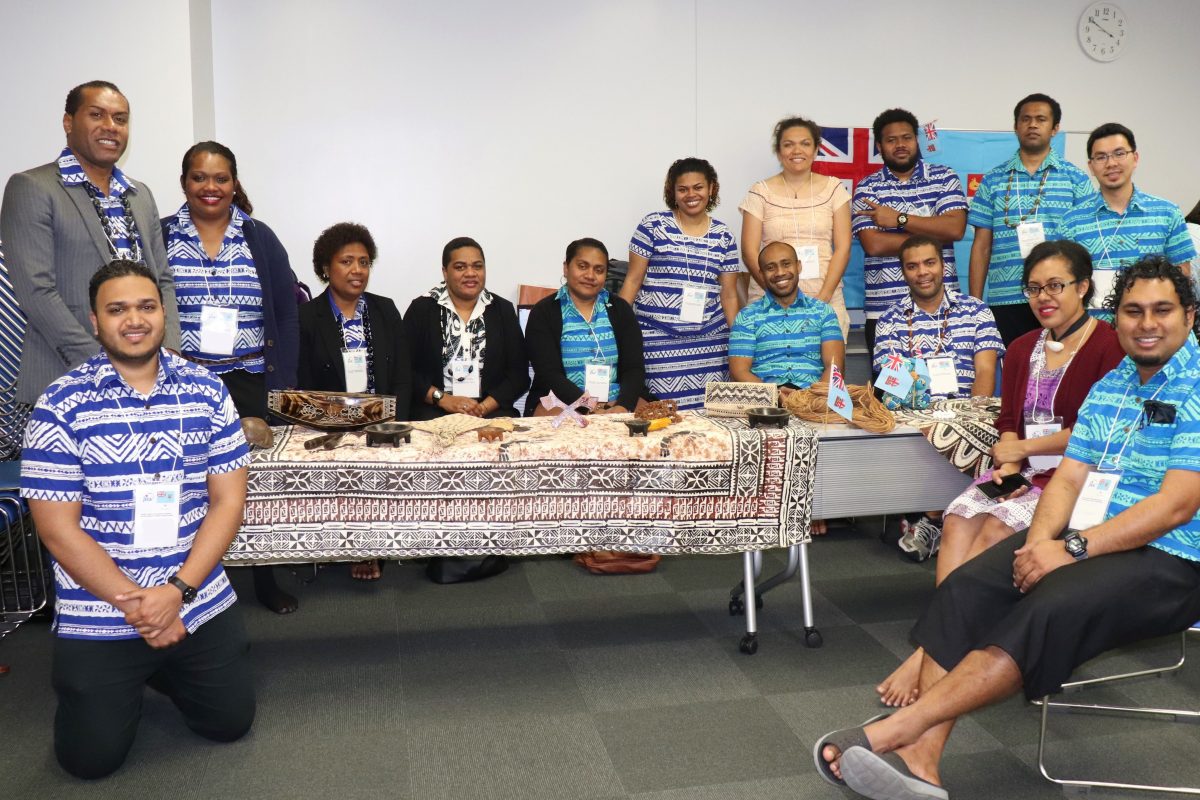
Period : 2016/7 - 2022/5
Client : JICA
Pacific-LEADS aims to foster young leaders who play vital roles towards the resolution of development challenges in Pacific Islands Countries, as well as to further strengthen the relationships between their countries and Japan.
This project accepts government officials from 14 Pacific Island Counties (Micronesia, Palau, Marshall Islands, Fiji, Papua New Guinea, Solomon Islands, Vanuatu, Samoa, Tonga, Kiribati, Tuvalu, Nauru, Cook Islands, Niue), such as counterparts of the Japan International Cooperation Agency (JICA) projects, as international students. This program provides them with opportunities for master's courses at Japanese universities and internship at central government ministries, local governments, companies and so on.
The fields to be accepted are disaster risk reduction; climate change; the environment; sustainable development; oceans, maritime issues, and fisheries; trade, investment, and tourism; economic policy and other academic fields which are development issues in Pacific Island Counties.
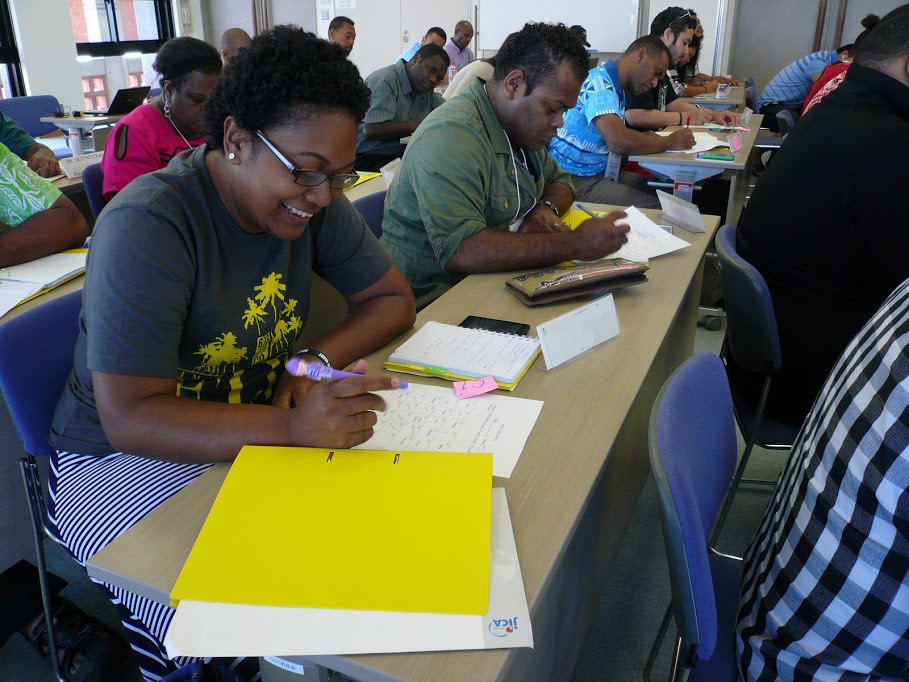
Master's Course Education at Japanese Universities
International students are enrolled in graduate schools (master’s courses) in Japan to gain a broad perspective and deepen their expertise in their respective fields of expertise. In principal, students belong to courses that are offered only in English, and like Japanese students, they write their master’s thesis while satisfying graduation requirements such as required credits. International students will use their long vacations to conduct fieldwork in their home countries and conduct research in cooperation with relevant organizations in Japan, thereby developing knowledge and skills that contribute to solving development issues in Pacific Island Counties. In addition, through university life, students will come into contact with the language, culture, and lifestyle of Japan and deepen their understanding of Japan. We support the lives of international students through regular monitoring and close collaboration with their universities and supervisors.
Internship Aimed at Capacity Development and Human Network Formation
Internships will be held during their first summer vacation in Japan. We consider an internship organization that matches each student’s interests and areas of specialization, and assist in finding and coordinating the host, designing the training contents, arranging the transfer, and follow-up after implementation. International students not only acquire practical expertise and skills through on-the-job training, but also aim to build relationships with future business partners. People-to-people exchanges will continue after returning to Japan, and international students are expected to play a role as a bridge between Japan and Pacific Island Countries.
Improving Administrative Capacity in Joint Programs
For international students who have been in Japan for one year, a one-week training program (joint program) will be held. Asia SEED is responsible for all aspects of its planning and management. The joint program aims to improve the administrative capabilities of international students by learning about the systems and innovative initiatives of local governments in Japan. International students will propose concrete solutions to development issues in their home countries based on the knowledge gained through the training. The training also includes opportunities to experience Japanese culture and to introduce the culture of one’s own country to Japanese participants. International students deepen their mutual understanding through exchanges with others.
<Reference>
Pacific-LEADS:Pacific Leaders’ Educational Assistance for Development of State (JICA)


